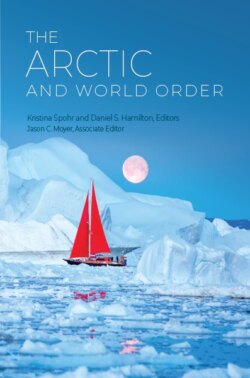Читать книгу The Arctic and World Order - Группа авторов - Страница 16
На сайте Литреса книга снята с продажи.
Chapter 1 Shifting Ground: Competing Policy Narratives and the Future of the Arctic
ОглавлениеOran R. Young
Policy narratives are interpretive frameworks that both analysts and practitioners develop and use to facilitate thinking in an orderly and coherent fashion about issues arising in policy arenas. Because they are social constructs, the core elements of such narratives are non-falsifiable. Nevertheless, policy narratives exercise great influence not only during processes of agenda formation in which they help to identify emerging issues and to frame them for consideration in policy arenas but also, and more specifically, in efforts to assess the pros and cons of alternative ways to address those issues that move to the top of the agenda. Sometimes, a single appealing narrative comes to dominate an issue domain so that there is broad agreement regarding ways to think about specific issues arising within that domain. At other times, by contrast, alternative narratives compete with one another for the attention of those active in policy arenas. In such cases, debates about the suitability of different narratives often play roles that are more important as determinants of agreement and disagreement among policymakers than differences regarding matters of fact.
Policy narratives are not simply products of unbiased efforts to explain or predict the course of events in the realm of public affairs. They reflect the outlooks of those who create and deploy them: interests on the part of policymakers and representatives of nonstate actors and intellectual commitments on the part of scholars and commentators. This means that efforts to shape prevailing policy narratives and debates about the relative merits of using different narratives to interpret real-world developments are political in nature. Both practitioners and analysts devise and deploy narratives that reflect their own mindsets and cast their preferred interpretations of reality in a favorable light. But this does not detract from the significance of policy narratives. On the contrary, it makes it easy to understand why debates about the suitability of different narratives are often protracted and can spark intense controversy in specific settings.
In this chapter, I apply these observations about policy narratives to the recent history of the Arctic to explain both the remarkable rise of cooperative initiatives in the region in the aftermath of the Cold War and the growth of conflicting perspectives on Arctic issues in recent years, a development that makes it increasingly difficult to arrive at mutually agreeable responses to prominent Arctic issues arising on policy agendas today. Coming into focus initially toward the end of the 1980s, what I will call the Arctic zone of peace narrative provided the conceptual foundation for a series of cooperative measures that the Arctic states launched during the 1990s. Foremost among these initiatives were the adoption of the Arctic Environmental Protection Strategy in 1991 and the establishment of the Arctic Council in 1996, along with a series of activities carried out under the auspices of the council in the 2000s (e.g. the Arctic Climate Impact Assessment completed in 2004, the Arctic Marine Shipping Assessment completed in 2009).
As the 2000s gave way to the 2010s, however, consensus regarding the Arctic zone of peace narrative began to fray, a process that has accelerated over the last few years. What is striking in this regard is that no single new narrative has arisen to replace the original Arctic zone of peace narrative as a dominant interpretive framework. While many continue to adhere to the principal tenets of this narrative to guide their actions, three alternative frameworks have emerged and now compete for the attention of policymakers. In this chapter, I will call these competitors the global climate emergency narrative, the energy from the North narrative, and the Arctic power politics narrative. It remains to be seen how the competition among these narratives will play out during the coming years. But there is no doubt in my judgment that the outcome will have profound consequences for the course of Arctic international relations and, more generally, for the place of the Arctic in the overarching global order during the coming years.
I develop this line of thinking in several steps.1 I start with a brief account of the content of the Arctic zone of peace narrative together with a commentary on its impact on policymaking, before turning to the erosion of consensus regarding this narrative and the emergence of the three competing narratives. I then direct attention to the future, offering some reflections on the likely course of developments during the 2020s and beyond with regard to the rise and fall of interpretive frameworks dealing with Arctic affairs and what this will mean for those concerned not only with the future of the region itself but also with broader questions regarding the place of the Arctic in the global order.
